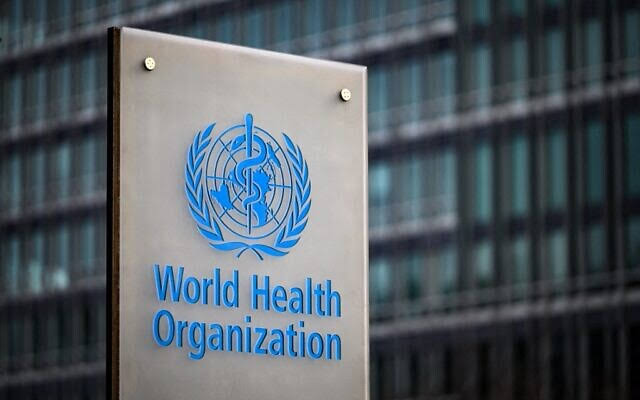The World Health Organization (WHO) has advocated for a data-driven approach to identify the most effective and equitable use of resources to accelerate progress against malaria in Nigeria, and other high-burden countries.
The Director General of WHO, Dr Tedros Ghebreyesus, in his remarks at the roundtable discussion on Rethinking Malaria Elimination in Nigeria, emphasised that such equitable resources means better financing, and better partnerships.
While speaking further, Ghebreyesus lamented that Nigeria has had a long battle with malaria, and while the country has made good progress, it remains a major burden of disease, accounting for more than half of hospital visits.
He said: “Nigeria has the world’s largest burden of malaria, with more than a quarter of the world’s cases, and one third of global deaths, most of them children and pregnant women.
“It is time to turn the tide on this ancient killer. Just a few weeks ago, ministers from high burden countries in Africa met in Cameroon and signed the Yaoundé Declaration, committing to reduce deaths from malaria.
ALSO READ: How Nigeria can efficiently reduce high prevalence of malaria — Expert
“Now, just two months later, Nigeria is first out of the blocks, ready to translate the political commitment of the Yaoundé Declaration into action and resources – and I’m so proud to see this accelerated action, based on the declaration.
“We live at an exciting time, with powerful new tools, including the world’s first malaria vaccine and more effective bed nets.
“In tandem with existing tools, and with strong community engagement on vector control, we have a real opportunity to realise the vision of the Yaoundé Declaration,” he said.
Also, the Coordinating Minister of Health and Social Welfare, Prof. Muhammad Ali Pate, also described as “unfortunate” the increasing annual deaths from malaria.
Pate expressed disappointment as he said despite huge financial and logistic investments over the years, malaria could not be eliminated in Nigeria, rather more deaths are being recorded annually as a result of malaria.
He, therefore, insisted that Nigeria (African countries) and the global malaria community must reinvent approaches to address the constraints that prevent efficient delivery of existing effective key malaria control strategies, and forthcoming innovations and tools.
“It’s exactly 24 years ago, (April 25, 2000) during the African Summit on Roll Back Malaria (RBM) in Abuja, that over 44 Heads of Government and Development Partners signed the “Abuja Declaration on RBM” outlining several objectives and a plan of action to combat malaria in Africa.
“But when we interrogate the objectives of the Declaration, we could candidly assess how much progress or otherwise we have made. The RBM Initiative has achieved remarkable progress even though we are yet to triumph over malaria.
“We have witnessed increased funding for malaria control efforts in Africa, from domestic and international sources, but huge gaps still exist.”
“Undoubtedly, tools for the control of the disease have evolved both in quantity and quality over the years, but commitment by countries towards the elimination of the disease could not be sustained as budgets for healthcare across countries on the continent dwindled over time, and only a few countries could achieve the Abuja targets.”
Meanwhile, the Minister of State for Health, Dr. Tunji Alausa, in his submissions, disclosed that about 60 per cent of all hospital attendance in Nigeria is for malaria, adding that the disease contributes about 25 to 30 per cent to childhood mortality.
“There is hardly any aspect of our daily lives that is not affected by malaria, which has a consequential effect on our productivity. The disease has indeed remained a foremost public health challenge.
“Nigeria has witnessed some reduction in the prevalence of malaria since the introduction of some interventions such as the use of long-lasting insecticidal nets, the use of Artemisinin-based Combination Treatments for the treatment of uncomplicated malaria, as well as the introduction of chemo-preventive therapies for pregnant women and children below the age of 5 years.
“It is, however, disheartening that despite all these efforts, malaria remains a considerable burden in the country, affecting all age groups as well as unborn babies. We are not unaware that malaria is a moving target.
“As a people, we are determined to put in place an enabling environment and structures for our development partners in service delivery, and any other support that may be required to help combat the menace of this disease that has lingered for so long,” he assured.
